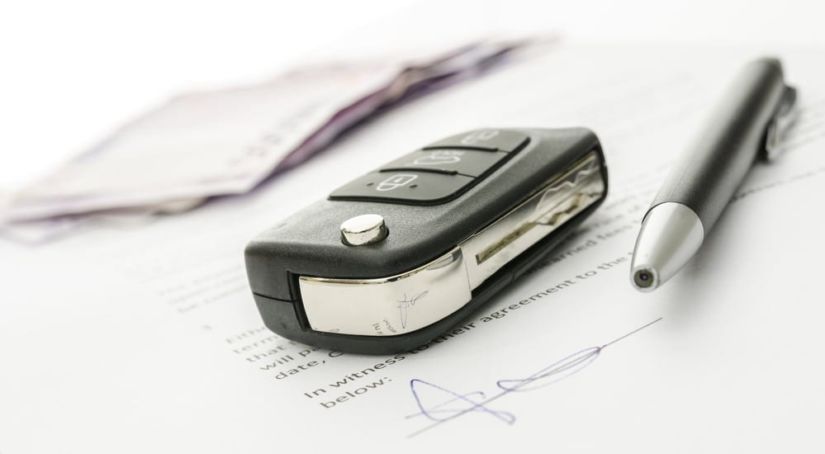Pursuing financing on a vehicle can be tough, and this scenario is made even more difficult if your credit is in bad shape. Presumably, no traditional lender (like a credit union or bank) will be willing to extend you the necessary money, and you’ll be forced to settle for a Buy Here-Pay Here dealership. While these businesses do provide you with a useful and unique opportunity, the accompanying interest rates can be killers (of course, for many, this is the only realistic route).
Even then, as a customer, you can further complicate your situation by making silly mistakes during the buying process. What do we mean? Well, below we’ve explored several examples of customers who may have been a bit too trigger happy when it came to purchasing a vehicle. Ultimately, these individuals shouldn’t have been pursuing more debt, but buyers aren’t always rational. If you’re currently seeking an auto loan with bad credit, see which mistakes you should be avoiding…
Our first example from Reddit user u/xelerated1 emphasizes why you should always read a contract before committing to a purchase:
“So long story short this is my first auto loan in a decade. Simple Interest wasn’t explained to me, so I just assumed it was business as usual. After 2 years of paying on it I wanted to trade it in, It’s a minivan and im newly divorced….and a dude. I figured id be a little upside down, but what I found was I have paid to GM Financial 13,503 but my principle is only down 4520.00
I had no idea I was paying a car loan like it was a mortgage. Obviously its legal…..but definitely not moral (but what bank is)
Can anything be done? My credit score sucks but I’ve been trying to work on that.”
Well, this individual’s first mistake was committing to the purchase without reading the fine print. Had this car buyer known all of the financial details, they could have avoided their financial dilemma. Instead, by presumably rushing through the financial details, they’ve found themselves in a hole.
Furthermore, this buyer should have simply used common sense. Whenever you secure a loan on a depreciating product, you’re probably going to be experiencing some type of adverse financial result. This is especially common on a car, which drops in value the moment it’s driven off the lot (on the flip side, a loan on a house doesn’t have the same risk, as property could gain value over time). Otherwise, this individual should have been aware that interest rates can fluctuate daily, and consistent payments will provide you with the best grasp of your budget.
The next example (from Reddit user u/dragamex) shows why customers should be wary of mechanical issues as they’re shopping for a used vehicle, and it showcases the routes you should be taking if you’re forced to pursue a replacement car with poor credit…
“I purchased a 2007 Saturn Outlook in October 2014 from a Toyota dealership.
Long story short, the transmission is busted and I have <$1000. They’re charging ~$5k for the repair. I think the only option I have right now is to trade it in, get hosed on the tradein, and accept a $25-$30k loan for $12k worth of car.
On top of it, I have terrible credit from 4-5 years ago of stupidity. I’m just… Stuck here, and I figured I’d come to you guys to see if there’s any resources for either a reputable lender that won’t or at least will minimize drowning me in interest, or somewhere that would give loans for car payments like this? Or really, just any resource in general.”
The worst thing this individual could do is immediately opt for a replacement vehicle, whether it’s new or used. This will just force the buyer into even more debt, further complicating their already-tumultuous financial situation. Instead, this owner should be looking to reduce their debt and pursue the least-expensive option out there. This way, they can dig out of their hole without having being obligated to another burdensome piece of debt.
Ultimately, the best route would be shopping around for the cheapest mechanic. The individual seems to be slightly overvaluing transmission work, which should cost about half of the estimated $5,000. If the individual is really looking to save some cash, they could pursue each individual part via a private seller, which should be significantly less expensive than any alternative option. By opting for this particular route, you won’t be overcharged by any dealership or mechanic.
Finally, while Reddit user u/dvalo9isn’t necessarily operating with poor credit, they should be cognizant of their future financial situation…
“I need to buy a new car and for the last 3 years or so I would just buy a beater for 1000 outright when I needed a new one. I decided to buy something modern at the price of 6000 euros and I would get a loan for 4500 of that.
I earn 35000 euro a year and I am usually comfortable. My question is 4500 a lot to take out or should I save for a year or so and pay it outright. Am I digging too much of a hole for myself? I have mortgage repayments of 500 a month too.”
What’s the best route? Well, for starters, it’s always best to pay for a vehicle upfront (assuming you have enough cash in your budget). By opting for this particular option, you’ll minimize debt, and opting for a deal that’s accompanied by interest rates is rarely advantageous for the buyer.
Furthermore, this individual has to devise a budget that accounts for any lost wages. If the buyer suddenly lost their job, would they have enough money to continue completing their monthly payments? Presumably, the answer is no, in which case it’s clear that the best option is pursuing a vehicle once they can afford it in full. Otherwise, if they’re opting for a payment plan, they may be compromising their credit if they come across any future money issues.



